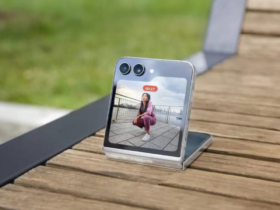Top 3 Key Points:
- Cellebrite, an Israeli firm, assisted the FBI in accessing the Samsung phone of the Donald Trump shooter.
- The FBI successfully unlocked the device using unreleased software provided by Cellebrite.
- The phone contained photos of political figures and searches related to major depressive disorder.
In a remarkable display of collaboration and technological prowess, Israel-based Cellebrite has successfully aided the United States Federal Bureau of Investigation (FBI) in cracking a Samsung phone used by the individual who recently attacked former US President Donald Trump. The incident, which unfolded last Saturday, involved a man named Thomas Matthew Crooks, who opened fire on Trump, setting off a nationwide alarm.
According to Bloomberg, the breakthrough occurred at the FBI’s Quantico lab in Virginia. This success came on the heels of the FBI’s initial failure to unlock Crooks’ Samsung Galaxy device, which had proven to be a formidable challenge. The involvement of Cellebrite, a firm renowned for its expertise in mobile device forensics, was pivotal in overcoming this hurdle.
The Bloomberg report elaborates on the technical intricacies of this operation. The FBI’s initial attempts to access the device had hit a dead end, prompting the call for Cellebrite’s intervention. The Israeli firm responded by providing the FBI with cutting-edge, yet unreleased, software specifically designed for such purposes. This collaboration highlights the seamless fusion of international expertise and advanced technology in addressing critical security concerns.
The phone in question was identified as a “newer Samsung model running Android’s operating system.” Despite the FBI’s sophisticated tools and methods, this device initially resisted all efforts to unlock it. However, with Cellebrite’s additional technical support and their state-of-the-art software, the FBI managed to gain access within a remarkably short span of 40 minutes. This rapid breakthrough underscores the efficacy of Cellebrite’s proprietary technology.
Upon unlocking the device, investigators discovered a cache of photos that included images of former President Trump, current President Joe Biden, and other notable officials. Additionally, the phone’s search history revealed inquiries about major depressive disorder, offering potential insights into Crooks’ mental state and motives leading up to the attack.
While the successful decryption of Crooks’ phone represents a significant triumph, it also casts a spotlight on the broader implications of mobile security. Notably, the software utilized by Cellebrite to crack the Samsung device is reportedly ineffective against Apple’s iPhones running iOS 17.4 and later. This fact underscores a persistent dichotomy in the realm of mobile security: while Apple continues to set the benchmark for privacy and security, this robustness can sometimes pose challenges for law enforcement agencies in critical situations.
This incident not only showcases the critical role of Cellebrite in modern forensic investigations but also sparks a dialogue about the balance between security, privacy, and the necessity of lawful access to encrypted information. As technology evolves, so too does the cat-and-mouse game between device manufacturers aiming to protect user data and forensic experts striving to uncover it for the sake of justice and security.
Cellebrite’s contribution to this high-stakes investigation reaffirms its status as a key player in the field of digital forensics. Their ability to develop and deploy advanced software that can circumvent modern encryption barriers is a testament to their technical prowess and innovative spirit. This case, while extraordinary in its particulars, is indicative of a broader trend where law enforcement agencies increasingly rely on specialized firms to navigate the complexities of digital evidence.
In the aftermath of the attack on Trump, the successful unlocking of Crooks’ phone has provided crucial leads that might otherwise have remained obscured. This breakthrough not only aids in understanding the perpetrator’s motivations but also serves as a vital tool in the ongoing investigation. The collaboration between the FBI and Cellebrite thus stands as a pivotal moment in the ever-evolving landscape of digital forensics and national security.
As the world grapples with the dual imperatives of privacy and security, this incident serves as a potent reminder of the delicate balance that must be maintained. Cellebrite’s ability to crack the Samsung phone, while significant, also highlights the continuous advancements in mobile security technology. It is a stark reminder that as encryption methods become more sophisticated, so too must the techniques employed to access encrypted data in the pursuit of justice.
The case of Thomas Matthew Crooks and the subsequent forensic investigation led by the FBI, with Cellebrite’s indispensable assistance, underscores a critical juncture in the intersection of technology, law enforcement, and security. It raises essential questions about the future of digital privacy and the measures necessary to ensure that justice can prevail in an increasingly digital world.



Leave a Reply